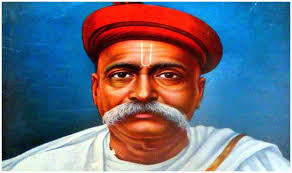Modern Indian History - 2
Formation of Congress:
It was formed by Allan Octavian Hume in 1885. during this time the viceroy of india was lord duffril.

THE FIRST SESSION:- 28 December 1885
- Attended by 72 delegates.
- First president : Womesh Chunder Bonerjee
- First women president: Annie Besant
- First Indian woman president- Sarojini naidu
- First British president: George Lule
- 1896 - the 12th Annual Session of the Congress held at Calcutta. Rahimtullah M Sayani was the second Muslim to serve as president after Badruddin Tyabji. As Congress president, his address to the party was notable for its detailed look on the British rule's economic and financial aspects.
- 1906 - Lokmanya Tilak and his followers held a separate conference and formed the Extremist Party. However they decided to work as a part of the INC. The difference between moderates and extremists widened in Congress' Calcutta Session of (1906) and attempts were made to elect one of them as the president.
- 1911 - Calcutta. President: B.N. Dhar First time recital of Jan-Gan-Man in Congress session.
- 1929 - The very first session of the Indian National Congress was held in 1885. In 1929 the Congress session was held at Lahore in 1929. This session was very significant because in this Lahore session the prominent party Indian National Congress, took the resolution of Poorna Swaraj or complete independence..
- DADA BHAI NEROJI : Educated at Elphinstone College, Bombay (now Mumbai), he was professor of mathematics and natural philosophy there before turning to politics and a career in commerce that took him to England, where he spent much of his life.


- BAL GANGADHAR TILAK : Bal Gangadhar Tilak, byname Lokamanya, scholar, mathematician, philosopher, and ardent nationalist who helped lay the foundation for India’s independence by building his own defiance of British rule into a national movement.
- BIPIN CHANDRA PAL : Indian journalist and an early leader of the nationalist movement. By his contributions to various newspapers and through speaking tours, he popularized the concepts of swadeshi (exclusive use of Indian-made goods) and swaraj (independence).
Great 🙌🏼
ReplyDeleteWow nicee
ReplyDeleteWell done! Useful information
ReplyDeleteNicely explained 👍🏻
ReplyDeleteVery informative.... Well explained 😊
ReplyDeleteUseful information
ReplyDeleteGood content
ReplyDelete